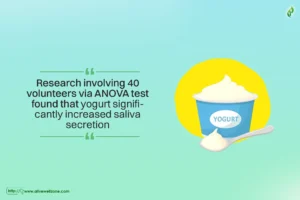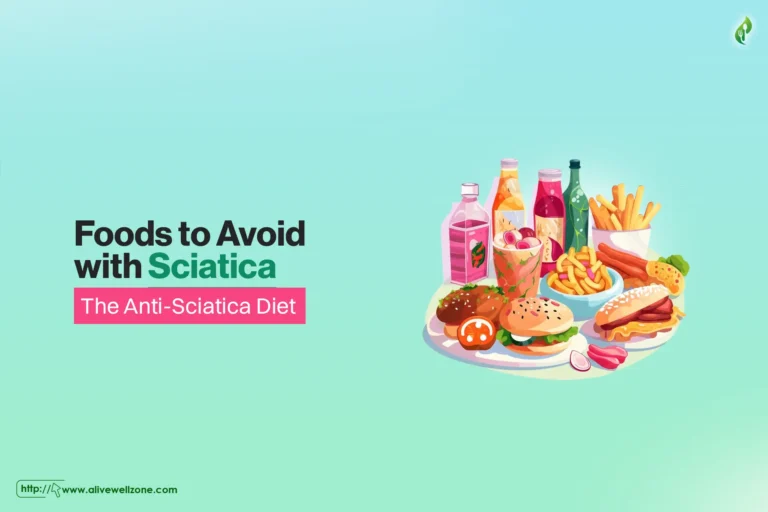
Last Updated on November 8, 2024 by Helena Akter
Is your dry mouth making every meal a challenge? Well, you’re not alone. Dry mouth affects millions and can be a real drag. That’s why you must know about the foods that help dry mouth.
For dry mouth, try watermelon, leafy greens, yogurt, stewed apples, citrus fruits, broth, nuts, cucumber, dark chocolate, ice cream, and herbal teas. They promote oral health by increasing saliva production and alleviating dry mouth discomfort.
Moving forward, we’ll not only explore the foods for dry mouth but also share which ones you should avoid. Plus, you’ll get useful tips so that you can eat comfortably with a dry mouth.
Key Takeaways
- Dry Mouth and Its Causes: Dry mouth, also known as xerostomia, occurs when the salivary glands produce insufficient saliva to keep the mouth moist. This condition can result from medications, nerve damage, dehydration, smoking, medical issues, or cancer treatments.
- Foods and Beverages to Help Relieve Dry Mouth: Foods and beverages can increase saliva production. Consider including the following in your diet: Watermelon, Leafy greens, Yogurt, Herbal teas, etc. Remember to stay well-hydrated by drinking plenty of water.
- Foods and Drinks to Avoid: To prevent discomfort, steer clear of the following Caffeinated beverages, Alcohol, Extremely hot or cold foods, Sugary, salty, spicy, acidic, and dry foods.
- Tips for Eating with Dry Mouth: To make eating easier, take small bites, chew slowly, focus on soft and moist foods, cool your food, and add slippery ingredients. Nutritious meal-replacement shakes and smoothies are good alternatives if solid foods are difficult to consume.
What is Dry Mouth?
Dry mouth, also called xerostomia, happens when your mouth lacks enough saliva to stay moist. You might hear it referred to as —
- Dry Mouth Syndrome.
- Cotton Mouth.
- Oral Dryness.
Normally, your salivary glands make about 0.9 to 2.5 pints (0.5 to 1.5 liters) of saliva every day. Saliva is important for a healthy mouth because it:
- Moistens food
- Helps with swallowing
- Cleans food particles from teeth and gums
Saliva also contains minerals like calcium and phosphate, which strengthen teeth and prevent decay. Dry mouth can affect anyone, especially during times of nervousness or stress.
What Causes Dry Mouth?
Dry mouth can happen for several reasons. Understanding these causes will help you identify and address the condition effectively.

Medications
Some prescription and non-prescription drugs can give you a dry mouth. Allergy meds, blood pressure pills, antidepressants, and anxiety treatments might lower saliva production or change its composition, causing dryness.
Nerve Damage
Injuries or surgeries involving the head and neck can harm the nerves responsible for saliva production, resulting in dry mouth. Treatments for oral cancer or radiation therapy in these areas can also damage salivary glands and nerves, contributing to xerostomia.
Dehydration
Insufficient water intake or loss of fluid from vomiting, diarrhea, sweating, or fever can lead to dehydration, which, in turn, causes dry mouth. Proper hydration is important for saliva production, and inadequate fluid intake significantly reduces saliva flow.
Tobacco Use and Smoking
When you smoke or chew tobacco, it can irritate your mouth and reduce saliva production. The harmful components of tobacco, including nicotine, can damage your salivary glands, leaving your mouth dry.
Medical Conditions
Some health conditions can cause dry mouth. Autoimmune diseases like Sjögren’s syndrome, Parkinson’s disease, HIV/AIDS, diabetes, and stroke affect salivary gland function and salivary nerves.
Cancer Treatment
Cancer treatments like radiation therapy to the neck and head can harm salivary glands, reducing saliva production. Chemotherapy can also change the amount and quality of saliva, causing dry mouth.
Best 12 Foods that Help With Dry Mouth
There are certain food for dry mouth that can increase your saliva production and help relieve the discomfort of dry mouth. You can get relief and promote oral health by including these items in your diet.
So major of those foods are —

1. Watermelon
You’ve probably considered watermelon as a juicy and refreshing treat. While that’s true, it also provides you with minerals like potassium and magnesium. Plus, its watery composition comforts your dry mouth without being harsh on sensitive tissues.
2. Water
When you’re wondering what to eat for dry mouth, remember, staying hydrated is important to stay safe from the effects of dehydration. So, you must drink 8 to 12 glasses of water each day to help produce saliva.
Plus, you can keep a water bottle with you to stay refreshed and ease dry mouth caused by reduced saliva flow.
3. Leafy Greens
Include leafy greens like spinach, kale, and lettuce in your diet. They’re filled with vitamins and minerals (like iron, calcium, and vitamin K) that keep you hydrated and promote healthy saliva production.
4. Stewed Apples
We all know that Apples are one of the best healthy foods, however, you should avoid raw apples when you’re experiencing dry mouth. Instead, consider stewed apples.
Cooking them until they’re soft makes them easier to chew and releases extra moisture. Plus, their natural sweetness encourages saliva production.
5. Yogurt
One of the best foods for dry mouth is yogurt. It’s enriched with probiotics, which restore beneficial bacteria in your gut. This helps digestion and keeps you hydrated. Research involving 40 volunteers via ANOVA test found that yogurt significantly increased saliva secretion.

It also helps protect teeth from decay caused by bacteria due to low saliva flow.
6. Citrus Fruits
Oranges, lemons, grapefruits, and limes are rich in Vitamin C. They promote healthy gums and provide relief from dry mouth. Regularly eating these fruits or drinking their juice can keep your mouth moist throughout the day.
7. Broth
Broth is made by simmering bones or veggies in water for hours, extracting all the good stuff into the liquid. If you have a dry mouth, broth is your friend—it hydrates you and gives vital nutrients.
Also, broth-based soups soothe your throat, easing irritation from low saliva.
8. Nuts
Almonds, cashews, pistachios, walnuts, and peanuts are protein-packed. They nourish your body and kickstart saliva production. So, if your mouth feels dry due to less saliva, these nuts offer relief and health benefits.
9. Cucumber
Approximately 95% of cucumbers are water, making them both hydrating and crunchy, according to a French and British study. When you munch on them, they hydrate your mouth and provide a cool, soothing sensation.

Also, the crisp texture stimulates saliva production as you chew, offering much-needed relief for dry mouth.
10. Dark Chocolate
When you enjoy dark chocolate in moderation, it has some health perks. It increases saliva production, which helps ease dryness caused by low salivary flow.
Plus, dark chocolate packs antioxidants that protect your teeth from cavities due to bacteria buildup from a dry mouth.
11. Ice Cream
Ice cream is a go-to treat for folks dealing with mouth dryness. Its coolness and creamy texture soothe discomfort. Plus, the sugar in ice cream revs up saliva production, giving quick relief to parched mouths.
12. Herbal Teas
Sip herbal teas such as chamomile, ginger, or green tea—they’re great for keeping your mouth moist. These teas hydrate and provide a soothing effect throughout the day. Just steer clear of caffeinated options, as caffeine can worsen dryness.
Bonus Tip: If ADHD medication leaves you with a sore mouth, consider using Xylimelts, Oralieve spray, or Boots moisturizing mouthwash.
Food and Beverages to Avoid With Dry Mouth
If you have a dry mouth, avoiding certain foods and drinks can help minimize discomfort and eating difficulties. While increasing water and fluid intake is essential, some beverages and foods can worsen the condition.
Here’s a table of foods and drinks you should avoid —
| Category | Avoid These |
| Caffeinated Fluids | Tea, Coffee, Cola (acts as diuretics, not ideal for dry mouth sufferers) |
| Alcohol | Limit or avoid alcohol consumption |
| Temperature | Extremely hot or cold foods |
| Sugary Foods | Foods with high sugar content like (sweetened fruit drinks, regular soda, sports/energy drinks) |
| Salty Foods | Excessively salty foods |
| Spicy Foods | Spicy dishes that can irritate the mouth |
| Acidic Fruits | Tomato, Grapefruit, Orange, Pineapple |
| Astringent Foods | Apple, Pear, Pomegranate, Quinoa, Legumes, Sprouts, Beans, Tofu, Lentils |
| Dry Foods | Crackers, Toast, Pastries, Cereal, Dry Meat |
Tips to Help You Eat Well with Dry Mouth
Eating can be challenging when you have a dry mouth, but there are many strategies to make it easier and more enjoyable. Try these tips —
- If you can eat solid foods, take small bites and chew them thoroughly.
- Opt for canned fruit, yogurt, custard, or pudding. Use sauces or gravy to soften casseroles, potatoes, and meat.
- Enjoy room-temperature soft-cooked chicken and fish, and let hot cereals cool down.
- Use olive oil, canola oil, avocado, or almond oil to make swallowing easier. You can also try yogurt, jelly, or jam.
- Refresh yourself with frozen grapes, peach slices, or watermelon wedges.
- If solid foods are challenging, try nutritious meal-replacement shakes or smoothies. Remember to stay hydrated by sipping water throughout the day!
Final Words
We’ve explored foods that help dry mouth. You can eat juicy fruits, leafy greens, and even some dark chocolate can become your taste buds’ protectors when it comes to dealing with dryness.
Remember, water remains your go-to, but these foods can be a tasty and refreshing backup. Researchers are constantly on the lookout for more delectable solutions, so who knows, your favorite snack could be the next!
In the meantime, feel free to explore these options and get rid of that pesky dry mouth!
FAQs
Does honey help dry mouth?
Yes, honey can help with dry mouth. Applying honey topically stimulates the gustatory system, increasing salivary flow. Studies show honey mouth care effectively reduces xerostomia, providing relief for dry mouth sufferers.
Is banana good for dry mouth?
Yes, bananas are good for dry mouth. Ripe bananas are especially beneficial as they are easier to digest and have a softer texture, promoting moisture in the mouth. Avoid unripe bananas, which are higher in starch and can be slightly drying.
Does lemon juice stop dry mouth?
Yes, lemon juice can help stop dry mouth. Its citric acid content and sour taste stimulate saliva production more effectively than pilocarpine. Studies show lemon juice is a reliable home remedy for increasing saliva flow and alleviating dry mouth symptoms.







